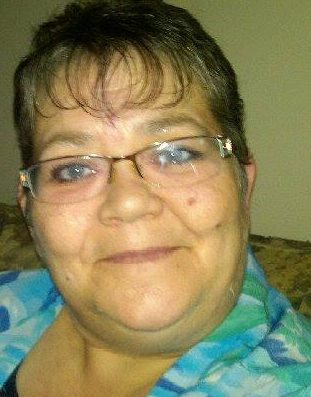
Diane Boulanger is a patient and family advisor in the Regina Qu’Appelle Health Region
Diane Boulanger knows what it’s like to be a patient.
The Saskatchewan grandmother has experienced a number of medical procedures and issues – such as a mastectomy, hernia surgery and a collapsed lung – and has had a variety of experiences in the health care system. Some have been positive, while others were not.
Boulanger’s experiences inspired her to become a patient and family advisor in the Regina Qu’Appelle Health Region – a role that she is passionate about. She wants to work with others in Saskatchewan’s health system to help improve the care that is provided. As a patient, she brings valuable perspectives to quality improvement work.
“I knew I could not come at it from an angry point of view, but with an open mind and open heart to do something to make a difference,” Boulanger said.
While Boulanger describes health care in Saskatchewan as “a great system,” she acknowledges that there is always room for improvement.
“The current system is not broken – not by a long shot – but it is need of repair,” she said.
“I must say that I am so glad I ran into a former co-worker who told me about becoming a patient and family advisor. I have made so many great friends and I have witnessed some changes in the health care system. We have a lot of work left to do, but isn’t it wonderful that our voices are being heard?”
Boulanger has been a patient and family advisor since April 2013, and her perspectives have been welcomed by others in the health system. As an advisor, she has been a member of committees and has participated in Rapid Process Improvement Workshops (RPIWs), a five-day process that brings together health system leaders, front-line staff, patients, and others to tackle a specific issue.
“Even without the credentials behind my name, my voice was not only heard but listened to. I was engaged in all aspects of conversations. That was an amazing feeling,” she said.
“I found out that the health care providers wanted to make a change as much as I did and that, working together, we could accomplish that. Even if it was baby steps, at least they were steps forward.”
Patient and family advisors are individuals from the community who have had recent experience as a patient or as a family member of a patient accessing health care services. They provide insight and feedback to the health system in the design and development of services and in quality improvement efforts across the province. They help to ensure that patients and families are treated with respect and are able to participate in their care to the degree that they are comfortable. Patient and family advisors seek to optimize the way care is provided so that, through collaboration with health care providers, patients and families can make informed decisions about their care. More information about what patient and family advisors do can be found in the newly developed Patient and Family Advisor Handbook.
Patient- and family-centred care (PFCC) is a philosophy based in respect, dignity, collaboration, information sharing, and meaningful participation. In 2014, a provincial PFCC strategy was finalized and a new governance structure was developed to support the implementation of a more patient- and family-centred philosophy and best practices. The three-year strategy seeks to support health regions to increase the level of engagement of patients and families in their own care, in each organization, and across the health system.
Boulanger believes it is important for Saskatchewan’s health system to focus on PFCC. Patient and family advisors like Boulanger play a key role in supporting the implementation of PFCC.
“Who better knows what is wrong with a system than the user? Who is better to say that something is broken than the user? Our health care is pretty good; I know they have saved my life a time or two. However, there are times when the professionals may not get what we (patients and families) are asking,” she said.
“So, by pulling together the professionals and the patients/families, we can both be made aware of what is wrong and work together to find a solution for a much better system.”
Boulanger believes health care employees “are loving and caring people who are doing their job to the best of their ability with the tools they are given.” She is enthusiastic about working with them to improve health care quality.
“I have witnessed the ‘ah-ha’ factor when they are presented with the whole picture and not just bits and pieces to the puzzle. Just like any profession/job, if there is a breakdown in communications and a lack of accountability of who is responsible for what, there is going to be problems. Understanding to their fullest is something everyone has to do,” she said.
“PFCC has provided me with a tool to become a strong advocate for not only the patient, but for the health care system.”
For more information about PFCC, visit the Health Quality Council’s website.



